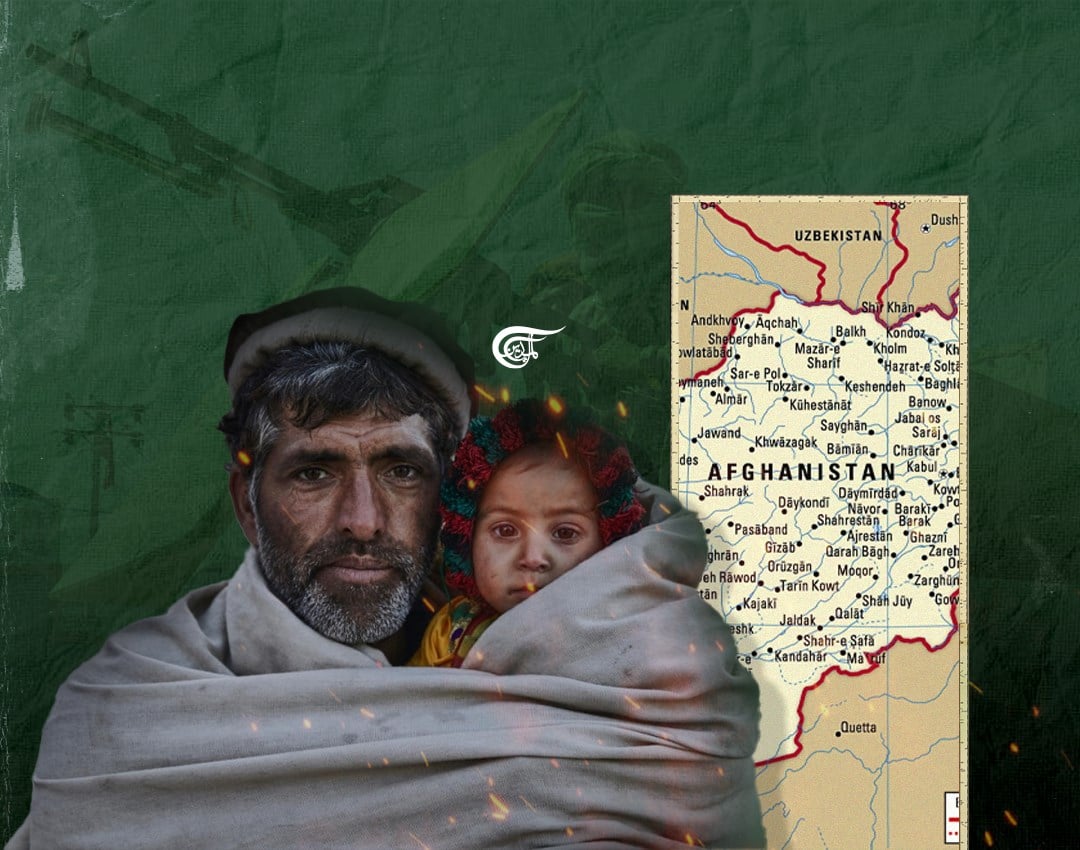Afghanistan in the Abyss (I): News from the Realm of the Taleban
Rumors are circulating of a coup being plotted by some elements of the Taleban.
On the way to the abyss
Since the mid-70s of the 20th century, Afghanistan has been inexorably edging its way into an all-encompassing abyss.
On July 17, 1974, with the help of left-wing officers (members of the Patcham faction of the PDPA – the People’s Democratic Party of Afghanistan), former Prime Minister (1953-1963) and cousin of King Mohammad Zaher, Prince Mohammad Daud (popularly known as "the mad prince") abolished the monarchy and proclaimed a republic. From then on, the catastrophe took its course. Four years later, on April 27, 1978, the mad prince was overthrown in a bloody coup by officers led by the Khalq faction of the PDPA, and he and his family were killed during the fighting in the Palace of the Republic. From that beautiful spring day on, the chain of bloodshed has not been broken till this day… and from the looks of things, nothing will change in the near future.
So... the PDPA proclaimed the "Democratic Republic". This party consisted of two opposing factions: the Khalq faction (named after its press organ "Khalq; i.e. The People") and the Parcham faction (named after its press organ "Parcham; i.e. the Flag or the Banner"), which reunited shortly before the coup. However, this unification did not last long. A few months later, the two hostile factions began to tear one another apart. In the internal party power struggle, the Parcham faction lost out. Its leadership and many of its members went into exile, into the underground, into prison, or into mass graves. In December 1979, the Soviet Union intervened militarily in the wake of this turbulence: the Khalq leadership was ousted, and the Parcham faction, now reunited with the rest of the Khalq faction, took power.
The chronology of the events that followed can be roughly summarized: the war against the Soviets and the PDPA (1978-1992), the fall of the PDPA and its government, the Mujaheddin's rise to power and the onset of civil war (1992-1996), the first Taleban regime (1996-2001), and the USA/NATO invasion (2001) – up to its notorious end…
In the 20 years of US occupation, the country was held on the edge of an abyss, which was given its fatal push with the comeback of the Taleban… and since then it has been sliding deeper into the abyss every day.
In the realm of the Taleban
Ever since the Taleban banned women from all areas of education and employment, an outcry has been heard around the world. Everyone condemns this measure in the strongest terms. Reportedly, even the Taleban are split over this issue. Rumors are circulating of a coup being plotted by some elements of the Taleban. According to them, two influential figures of the Taleban – Mulla Yaqub, the "Defense Minister" and son of Taleban founder Mulla Omar, and Serajoddin Haqqani, of the Haqqani Network and Interior Minister of the Taleban, who until now were in rivalry with each other – suddenly joined forces and went to Kandahar to speak directly to Taleban leader Mulla Haibatollah Akhondzada to express their "concern" over his recent bans and to persuade him to rescind them. But Mulla Akhondzada apparently rejected their visit… and then it was said that he was away visiting the city of Ghazni. However, according to eyewitnesses, there was no sign of this visit in Ghazni.
In Kabul, there is talk of fierce infighting amongst the leading figures in the Taleban government. There must be something to these rumors… because in both Kabul and Kandahar, Taleban soldiers and tanks have been assembling at strategic points in these two cities and taking up positions. (Kandahar happens to be the residence of Akhondzada and the troops loyal to him.)
The Taleban proclaimed that, in its 28th meeting, the Council of Ministers unanimously voted to implement the ban immediately and in a manner most satisfactory to the Ministry of Education.
Were those two important ministers, Mulla Yaqub and Serajoddin Haqqani, at all present at this meeting? If so, did they raise their voice and express their "concern" there, or were they hindered? The ban is being monitored and implemented by personnel from no other than the Ministries of Interior and Defense. And both these ministries are presided over by Serajoddin Haqqani and Mulla Yaqub.
What kind of game are the Taleban playing here?
They are stalling for time. In any case, the world – especially the part that calls itself "the international community" – is preoccupied with much more important things: the conflict in Ukraine is being deliberately escalated by the West to a war between NATO and Russia/China, and thus to an imminent nuclear war of global annihilation… the USA is threatened with the loss of its hegemony, its unipolarity, and the rule of the dollar. The EU, especially Germany, is being deindustrialized (the Morgenthau Plan). The oligarchy, the monopolistic finance capital, and the digital technocracy (the "globalists") are eager to implement their version of "the fourth industrial revolution" (the Great Reset) and with it the "dehumanization of society" and the salvation of capitalism in a new form (a blend of feudalism and modern slavery) that demands total control of the population on a global scale (fascism or at least forms of totalitarian systems of rule). The politicians and the media and the other propaganda organs are fully on board.
In such a situation, the Taleban need not worry much. The ban on women's education and work is a tactic to gain recognition by lifting the ban and opening educational institutions. Likewise, the talk of the moderates ("the good Taleban") and the radicals ("the bad Taleban") is a diversionary tactic like "good cop/bad cop" stratagem – made famous in Hollywood films. The Taleban are actually a heterogeneous bunch with diverse backgrounds. What unites them is their absolute loyalty to their leadership, and the leadership in itself is totally radical and extremist. The members of this leadership, headed by the invisible Mulla Haibotollah, are brainwashed, uneducated (in mundane terms), and products of a Muslim Brotherhood ideology linked to the Deobandi religious schools in Pakistan and the fossilized tribal culture and structures of Afghan Pashtun society.
The double ideology of the Taleban
The Taleban derive their legitimacy and self-righteousness from two sources: Sharia and Afghanyat (= "Afghanism" or "Pashtunism" aka Pashtunwali). In connection with Sharia, they embrace religious extremist ideology; and in connection with "Afghanism", they embrace the far-right ideology of supremacy.
In other words, the Taleban have combined two ideologies: the extremist Islamist ideology, which they share with other religious groups such as Al-Qaeda, the Muslim Brotherhood, DAESH, etc... and the fascist ideology of nationalists or, to be more precise: the sense of ethnic supremacy and autocracy of the Pashtuns. Thus, the notion of placing women on an equal footing with men and the non-Pashtun population on an equal footing with Pashtuns is incompatible with both of their ideologies.
Moreover, they possess a classic "Pashtun obduracy" and the firm conviction that they are the sole owners and protectors of Afghanistan… as well as an unshakeable religious conviction (an "iman") etched into their brains of their Islamic mission. They see themselves as "the better Muslims" compared to all other Muslims in the world today and as more elevated people than the rest of the population in Afghanistan. Their sudden attainment of power, which they see as their own victory over 40 powerful countries, has only increased their hubris (religious and nationalistic) to an insufferable level. An example lies in the words of Mulla Haibatollah Akhonzada.
On July 1, 2022, at a religious gathering in Kabul, Mulla Haibatollah Akhonzada accused the international community of interfering in his "Islamic" government and warned that non-Muslim countries would always oppose a purely Islamic state. He virtually ruled out an inclusive government. In an apparent rejection of international appeals for easing restrictions on women in Afghanistan, he said, "I am not here to fulfill your [foreigners'] wishes, nor are they acceptable to me. I cannot compromise on Sharia to work with you or even take a step forward."... He added, "You have used the mother of all bombs, and you are welcome to use even the atomic bomb against us because nothing can scare us into taking any step that is against Islam or Shariah."

 Tariq Marzbaan
Tariq Marzbaan
 8 Min Read
8 Min Read












